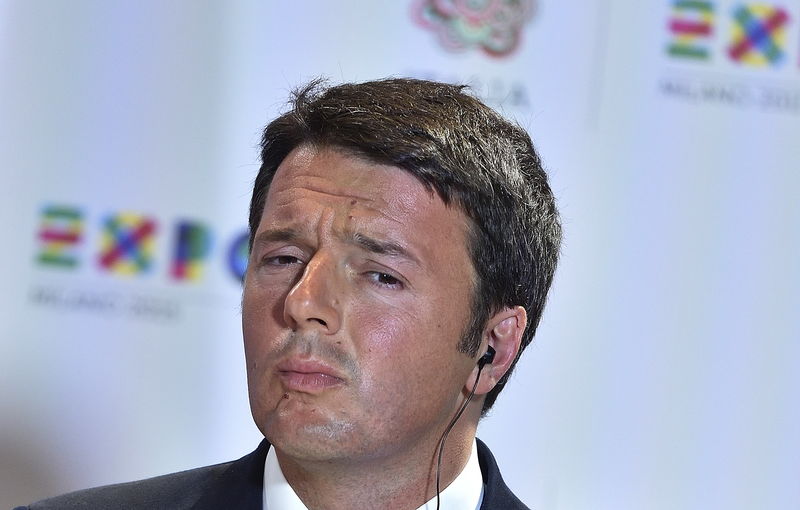By Danilo Masoni and Stephen Jewkes
MILAN (Reuters) - Italy's Prime Minister Matteo Renzi and the chief of Enel (MILAN:ENEI) SpA took time out of a visit to Malta in April to discuss a matter of national importance: how to use the state-controlled utility's pipes and pylons to help get high-speed Internet to all Italian homes.
Renzi had long wanted Telecom Italia (MILAN:TLIT) to cable the country for super-fast Internet to get Italy's digital reach up to speed with the rest of Europe and help kick-start a suffering economy. But the former state phone monopoly had deemed the effort too expensive, considering the low demand.
So he asked Francesco Starace whether Enel's electricity cables could be used to cut the cost, according to two people familiar with the Malta talks.
The meeting forced Telecom Italia's hands. Management was worried that Renzi might coax Enel into working with a rival telecoms company, according to a source at the company. Telecom and Enel are now studying ways to cooperate.
Renzi's intervention is a clear sign of how the 40-year-old leader is crafting a new policy for Italy's industry, which was owned and managed by the state for decades until 1990s privatisations. Governments since have largely stayed out of big national projects, with the exception of some, largely unsuccessful, attempts to block foreign takeovers.
"Renzi wants to see a quantitative and qualitative change and he's bashing a few heads together to get things moving," said Stefano Pileri, a former head of technology at Telecom Italia and now CEO of telecoms equipment supplier Italtel.
A spokesman for Renzi declined to comment on the Malta meeting.
A large part of his plan is getting industry on his side. Last year, he elevated a host of new managers to Italy's state-controlled companies, including Starace.
The government is also seeking to change top management at state lender Cassa Depositi e Prestiti (CDP), in the hope of giving it a bigger role in the economy.
The approach is not without risk. With a debt forecast this year to be 132.5 percent of gross domestic product, the Italian state is limited financially. Some executives say the government should focus on creating a better business environment — such as lower taxes and clearer laws — rather than getting directly involved in private business affairs.
"It's very important we don't go back to interventionist measures and models from the past," Federico Ghizzoni, the head of Italy's biggest bank UniCredit, said recently.
STATE INVESTMENT
Renzi has been at his most active in the telecoms sector. In March, his cabinet approved a 12-billion-euro ($13.5 billion) plan to build a fibre optic network nationwide. His goal is to beat European Union 2020 targets for ensuring high-speed Internet. The state would provide half the amount if private players committed the rest.
The plan said that for maximum speed, the fibre needed to reach the inside of people's homes, not just the streets, the option that Telecom Italia preferred.
Telecom was privatised in 1997 to help fund Italy's bid to join the euro single currency but a revolving door of owners piled up debt, crimping the company's investment potential.
Now, Telecom's new management is selling assets and halting dividend payments in order to shift back to investment. It has earmarked 700 million euros to bring fibre inside the homes of 40 big Italian towns and has considered more than doubling that, according to people familiar with the plan. But that leaves it short of the government's wish to connect at least 500 cities.
Telecom is worried that a fast switch to ultra-broadband would render its ageing 15 billion-euro copper network redundant. It is sceptical large investments make sense for its shareholders. According to a report by Italy's chamber of commerce association four out of 10 small entrepreneurs say they do not need it for their business.
Faced with Telecom's reticence, officials in Renzi's entourage at one point floated the idea to certain Telecom Italia investors that the state reinvest in the company to give Rome a greater voice in broadband strategy, according to people familiar with the discussions. Government officials deny they are considering taking a stake in Telecom Italia.
THE LAST MILE
Starace - a nuclear engineer by training who focuses on new technologies — saw an opportunity in the broadband debate to lay fibre cable using Enel's infrastructure. He has said that joining forces could mean Internet costs could drop to a fourth of what they are now.
Cooperation between energy and telecoms sectors is not new. European Union law requires utility companies to offer up their grids if there is a need. There has already been cooperation between power and phone companies on new generation networks in Switzerland, Luxembourg and Denmark.
But there are many questions, including how many of Enel's pipes have room for telecoms cables. A source familiar with Telecom Italia's fibre plans said estimated benefits of cooperation with Enel are limited to one out of ten buildings in Italy.
Moreover, Enel does not have a strong network presence in big Italian cities including Rome and Milan. And regulatory issues on who does what and for what returns without burdening the taxpayer will need to be tackled.
"It makes a lot of sense to cooperate with Enel in broadband. It remains to be seen if it works from an industrial and financial standpoint," Telecom Italia Chairman Giuseppe Recchi said.

($1 = 0.8916 euros)